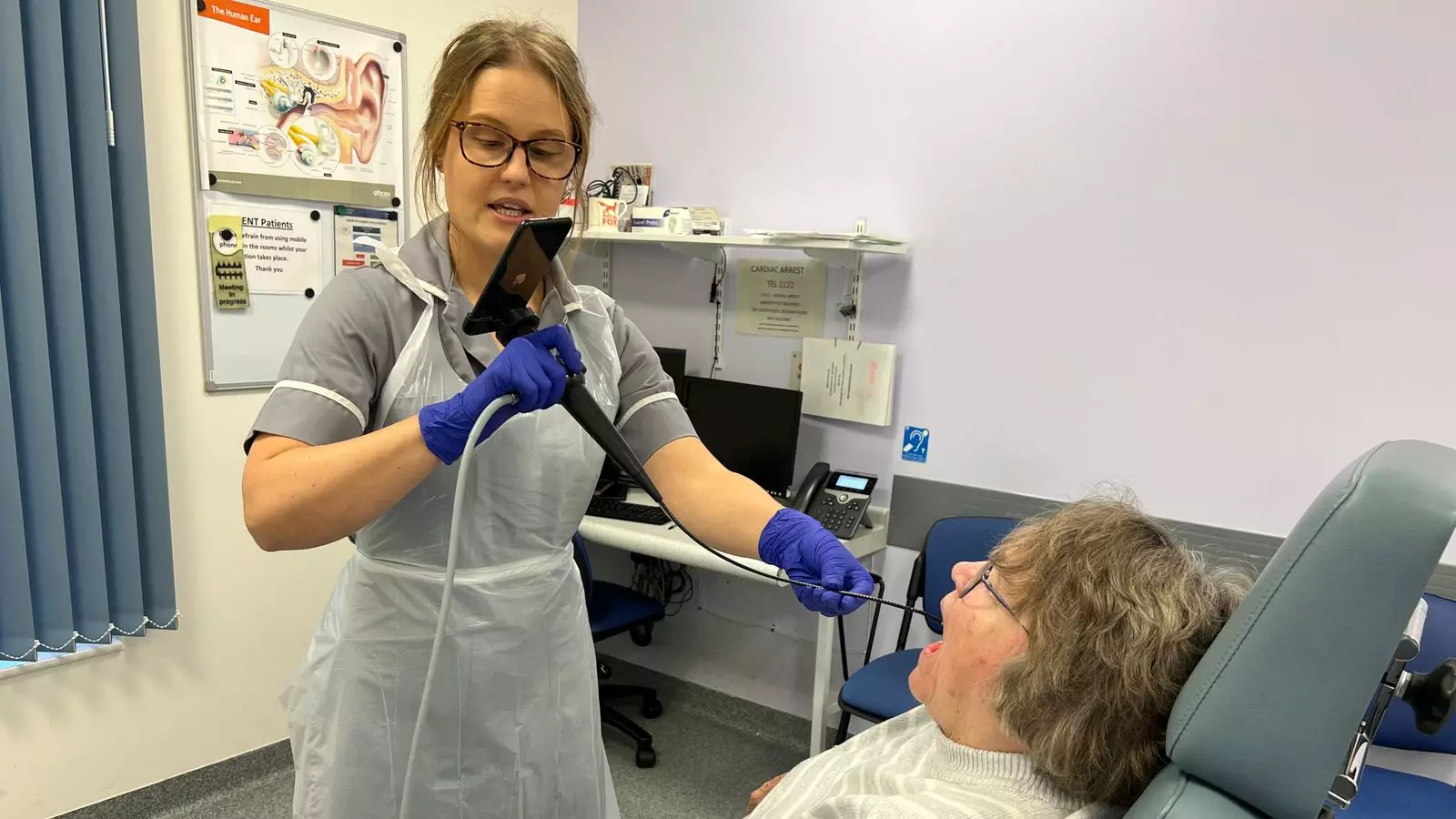In a significant advancement for cancer diagnostics, the NHS is piloting a new iPhone-compatible device designed to check for throat cancer quickly and effectively. The innovative endoscope-i adapter promises rapid results for patients, aiming to alleviate the anxiety surrounding cancer testing. By integrating advanced technology with smartphone capabilities, the device allows healthcare providers to streamline the diagnostic process, potentially changing the landscape of cancer detection.
Historically, diagnosing throat cancer requires invasive procedures like endoscopy, which involves inserting a camera-equipped tube through the mouth or nose. While effective, traditional methods tend to induce considerable stress in patients due to the lengthy wait for results—spanning days or even weeks. This method not only burdens the healthcare system with patient backlogs but also prolongs the emotional strain on individuals awaiting their diagnosis. The launch of this new device, which offers results in under a day, represents a compassionate shift in approach.
The endoscope-i adapter integrates a 32mm lens advanced endoscope eyepiece with a user-friendly app that interfaces seamlessly with iPhones. This user-centric design empowers nurses and medical practitioners to capture high-definition footage of the throat and provides a channel for immediate sharing with specialists. As a result, patients benefit from fast, professional evaluations without the usual hospital visits that can be both intimidating and time-consuming. Through this technology, immediate access to medical opinions is transforming patient care.
Initial trials conducted by the North Midlands University Hospitals NHS Trust yielded impressive results. Over 1,800 patients, deemed low-risk, were reassured they did not have throat cancer, receiving their results within approximately 23 hours. Moreover, the device successfully detected cancer in around 1% of the tested individuals—with no cases overlooked. This data reinforces the need for the technology, stressing its potential not only for early detection but also for its capability to accurately rule out cancer, thereby diminishing unnecessary stress for countless patients.
Statistical insights reveal that approximately 250,000 urgent referrals for head and neck cancer occur annually, of which a mere 5% culminate in an actual cancer diagnosis. By employing devices like the endoscope-i, the NHS aims to optimize resource allocation, alleviate hospital crowding, and significantly reduce wait times across the board. This innovation could effectively usher in a new era of patient care, prioritizing early detection while fostering timely action when needed.
Personal accounts from participants in the trial highlight the device’s profound impact on lives. Janet Hennessy, a 76-year-old participant, labeled the technology as “absolutely brilliant,” expressing relief over the shortened waiting period for results. Such testimonials underscore the importance of rapid diagnoses for alleviating emotional distress—both for individuals and their families.
Similarly, Kyle Jones, a 31-year-old who experienced the device’s capabilities firsthand, reflected on his initial confusion surrounding his symptoms. After learning that he had cancer, he emphasized the device’s role in his timely diagnosis, expressing fear about what could have unfolded had he waited longer. His narrative exemplifies the invaluable service that this technology provides, potentially saving lives through swift intervention.
The NHS’s trial of the endoscope-i adapter signifies a crucial leap forward in the early detection of throat cancer. By merging cutting-edge technology with traditional medical practices, this device enhances the speed and accuracy of cancer diagnosis while relieving patient anxiety. As more success stories emerge, the potential for broader implementation across healthcare settings becomes increasingly likely. The endoscope-i is not just a tool; it represents a transformative approach in the concerted battle against cancer, heralding hope for patients and their families.


Leave a Reply